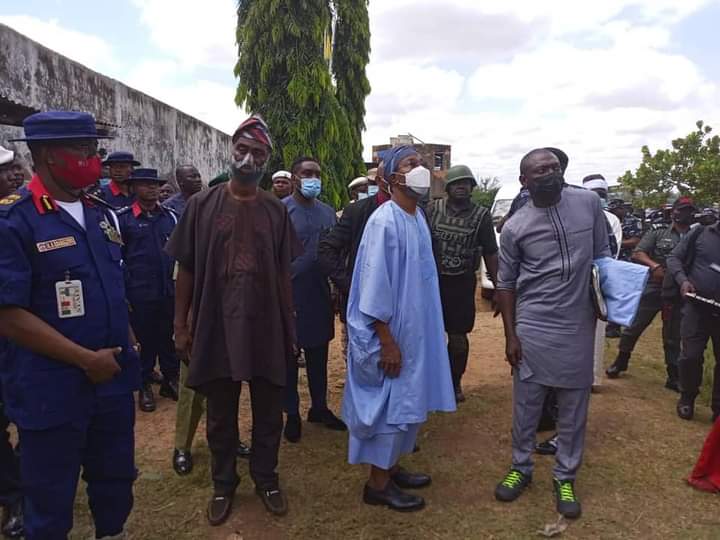The Federal Executive Council (FEC) has approved the sum of N965.9 million for the purchase of 49 operational vehicles to enhance the services of the Nigerian Correctional Service.
The Minister of Interior, Rauf Aregbesola, stated this when he briefed State House correspondents at the end of the Council meeting presided over by President Muhammad Buhari by on Wednesday in Abuja.
According to him, the vehicles to be sourced locally will complement the ones already in use by the Correctional Service.
He said: “The Nigerian Correctional Service through the Ministry of Interior presented a memo to council and obtained approval to spend the sum of N965, 902, 524.58 to procure 49 operational and Green Maria vehicles.
“These 49 vehicles will complement the 513 operational and Green Maria vehicles already purchased between 2016 and 2020.
“This does not in any way mean that we have met the vehicle needs of the Nigerian Correctional Service.’’
The minister noted that since the advent of the Buhari administration, concerted effort and commitment had been made to ensure that the Correctional Service was provided with operational tools to meet its mandate of keeping the facilities safe.
He added that necessary logistic support meant to move inmates from the facilities to the over 5022 courts scattered all over Nigeria were also being provided by the government.
Commenting on the recent calls for his resignation as a result of the frequent attack on correctional facilities across the country, the minister dismissed the call, saying there was no need for such calls.
He said: “Our facility in Imo was attacked in April, Kabba was in September, Abulungu was in October and Jos was in November; just to capture the attacks. As painful as those attacks were, nobody will really want the end of justice to be so vulnerable.
“The custodial facilities are the final end of criminal justice system because such facilities are the ultimate end of the administration of justice.
“So, morally, the State owes itself the responsibility of safe custody that must not be violated.
“So, on that account alone, we must appreciate the enormity of any successful attack on our custodial facility and I so do.
“But I want us to put these things in the context of our security situation.
“In Jos, our men died, meaning that the best we could put there was there and when your best could not suffice, it means that it is no longer a question of inability to make preparation or failure for preparedness it is just that at that instance we could not just hold the defence as expected,” he said.
According to Aregbesola, the authorities concerned are upping their game, to ensure that such attacks do not happen again.
“We are upping our game and we will prevent any such opportunistic attack and even make it impossible.
“We are working with all arms of government particularly security to make our custodial facilities impregnable and we will not rest until that is achieved; that is the assurance I want to give Nigerians.
“As to whether it calls for my resignation, I still don’t see any need for that because it is not for lack of preparedness that the attacks were successful,” he stated.
Femi Adesina, special adviser to the President on Media and Publicity, who also spoke on the outcome of the meeting, said the council approved N145 million for the procurement of an office accommodation for the Federal Character Commission in Bayelsa State.
He also announced the approval of N136.2 million by the Council for the procurement of operational vehicles for the National Agency for the Control of AIDS (NACA).
The Minister of Finance, Budget and National Planning, Zainab Ahmed, also disclosed that the Council ratified the Finance Bill 2021 for 2022 fiscal year.
She stated that already the bill had been transmitted to both Houses of the National Assembly by the president for their approval.
“Today, the Ministry of Finance, Budget and National Planning presented to Council for Council’s ratification the Finance Bill 2021 for the 2022 fiscal year.
“I’m sure you would have all noted that this bill has already been transmitted by the president to the National Assembly and both houses have already started working on the bill.
“So, this draft bill was prepared by the Fiscal Policy Committee and it focused on tax and reviewing some fiscal laws and also amending some, and these laws are about 11 in number,’’ she said.
NAN

